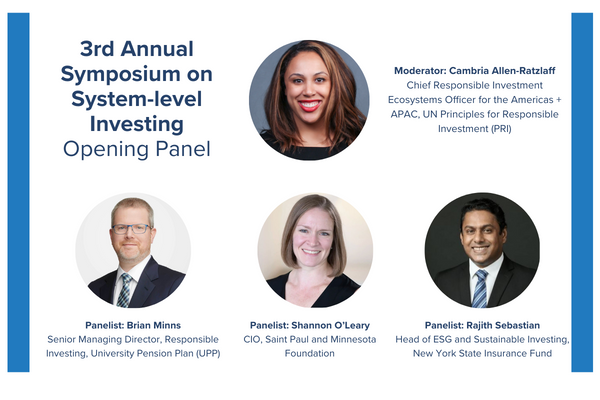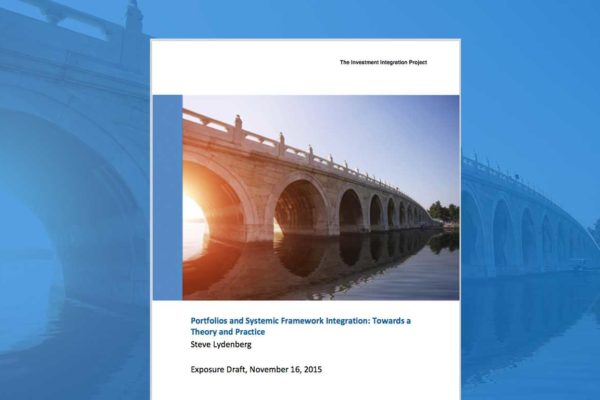Part 2-year anniversary of the release of the book 21st Century Investing: Redirecting Financial Strategies to Drive Systems Change and reflection on the state of the industry, TIIP hosted an event focused on the future of finance, namely system-level investing. The event, sponsored by Orrick, featured remarks from leaders at TIIP, University Pension Plan, Saint Paul & Minnesota Foundation, the Sustainable Investing Research Initiative (SIRI) at Columbia University SIPA, the Surdna Foundation, Worthmore, the U.S. Impact Investing Alliance and others at the forefront of the system-level investing movement.
Throughout the conversation, a few themes became clear:
- We are on the precipice of building an industry around system-level investing. Many of the speakers and attendees have been working in and around system-level investing for years, but often in silos or individual collaborations. Recent advancements, including TIIP’s SAIL platform (the first ever system-level investing enterprise management tool) are solidifying an industry to support the infrastructure needed for investors to fully engage with system-level tools and approaches. As Fran Seegull, President of the U.S. Impact Investing Alliance and Executive Director of Tipping Point Fund on Impact Investing said, we need to “fund the rails you ride on” to encourage more investors to incorporate system-level practices into their operations.
- Progress has been made around racial equity in investing, but much more needs to be done. Members of TIIP’s Racial Equity Working Group previewed key findings and implications from a body of work, which will be released next week, that is elevating racial inequity as a systemic risk on par with climate change. The research is also identifying associated leverage points in the system that can be utilized to advance toward shared intersectional equity goals. Email [email protected] to learn more.
- Similarly, much progress has been made in impact measurement, but investors still struggle to identify the most appropriate approaches to track system-level effectiveness alongside financial returns. A panel on the state of measurement explored the challenge of determining system-level progress due to the difficult nature of measuring influence. Most investors look at impact at a portfolio level, but they now need to look beyond their portfolios and consider how they are influencing the context in which their portfolios exist, as well as alignment with global standards and planetary boundaries. TIIP is currently working on a project that will develop and promote a standardized framework for investors for measuring their impacts and influence on systemic risks. Email [email protected] to learn more.



